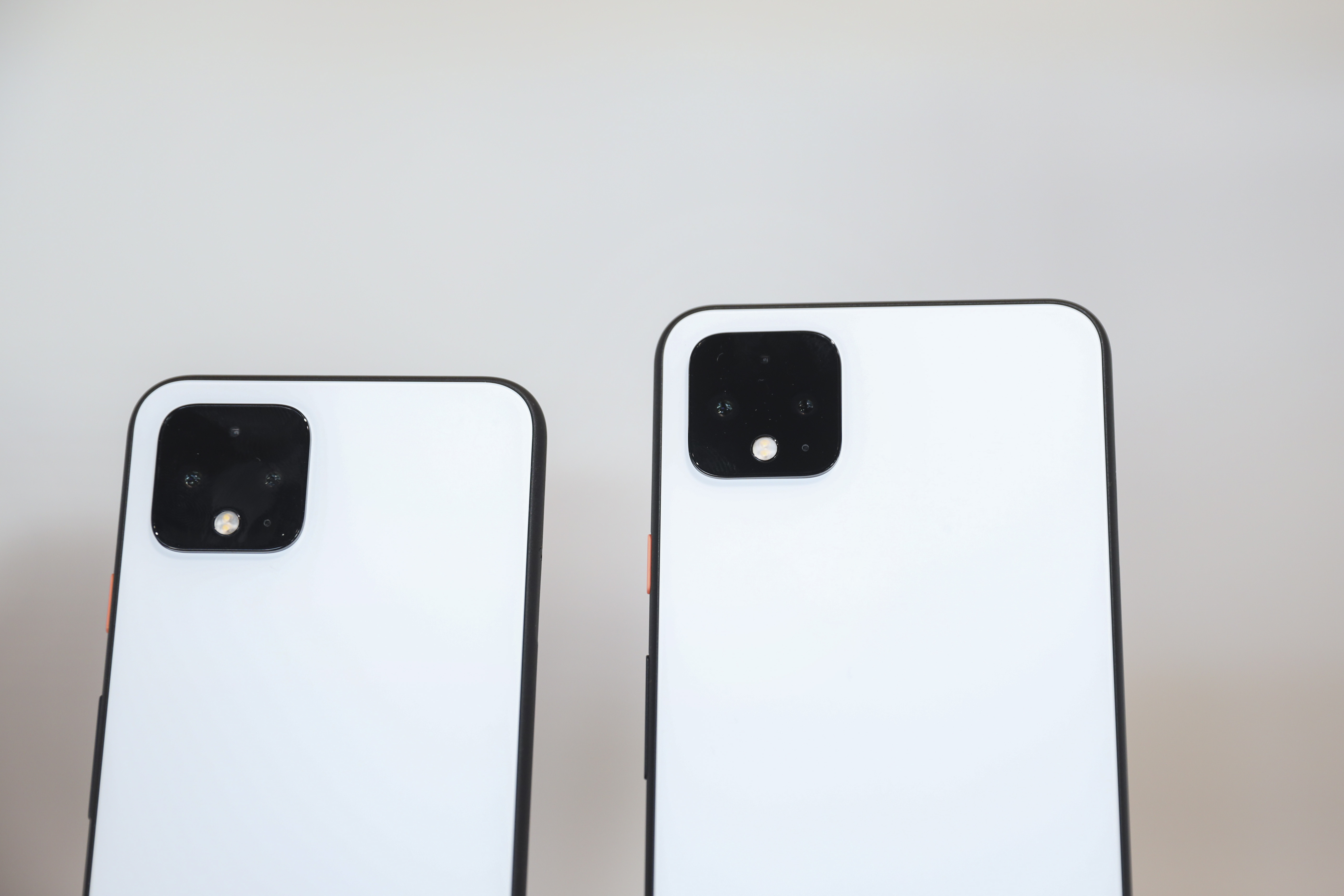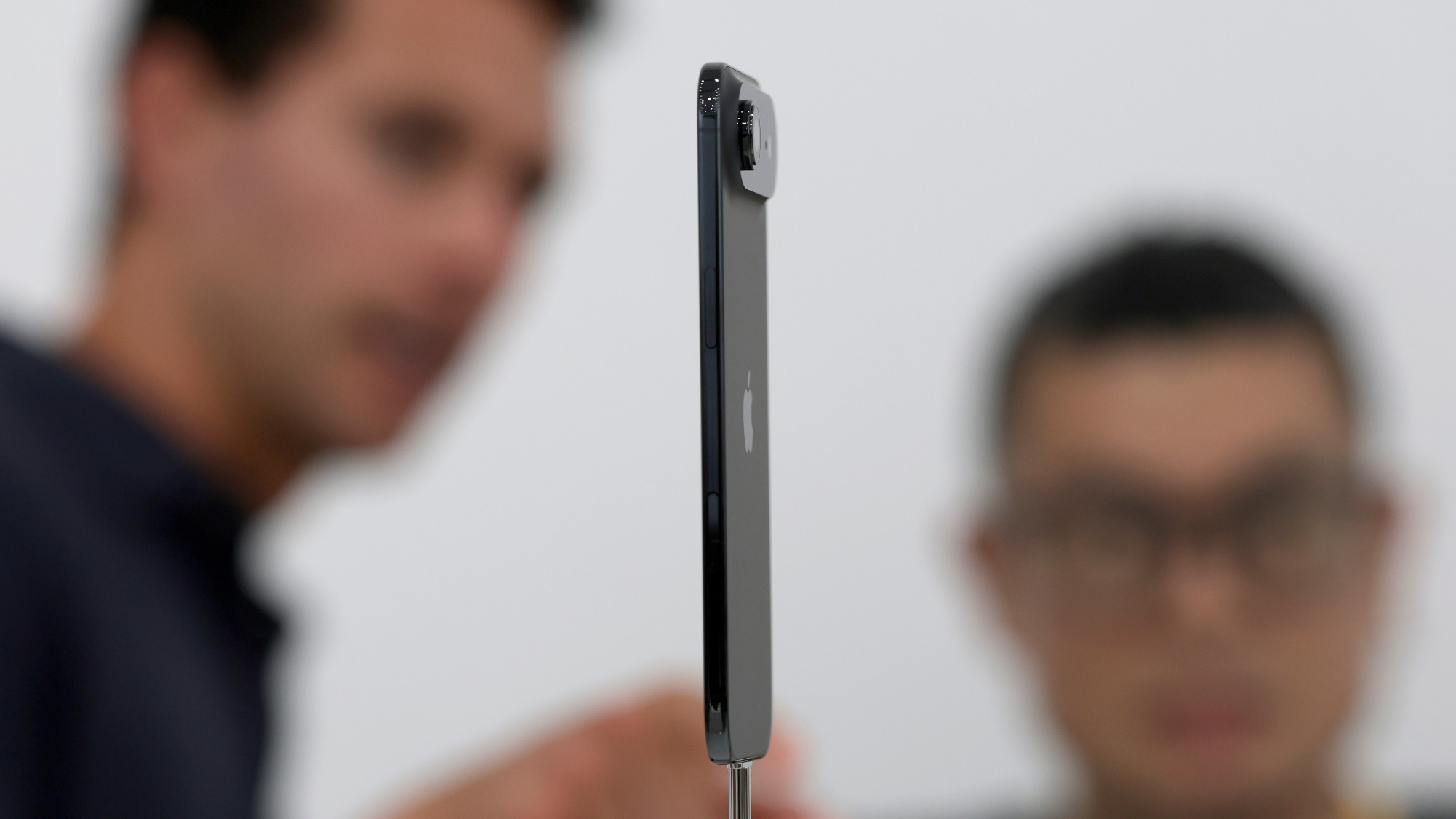Pixel 4 and Pixel 4 XL reviews: has Google missed the mark?
Critics put the iPhone 11-rivalling handsets to the test ahead of their official release

A free daily email with the biggest news stories of the day – and the best features from TheWeek.com
You are now subscribed
Your newsletter sign-up was successful
With only two days to go until Google’s new Pixel 4 smartphone range goes on sale, critics have been putting the iPhone 11-rivalling line-up to the test to see whether it lives up to the hype.
Unveiled at the annual “Made By Google” product event in New York last week, the Pixel 4 and larger Pixel 4 XL mark a significant step up from the search giant’s previous smartphones.
Google has also lowered the prices of its smartphones in a bid to undercut rivals, with the entry-level Pixel 4 costing £60 less than the standard iPhone 11.
The Week
Escape your echo chamber. Get the facts behind the news, plus analysis from multiple perspectives.

Sign up for The Week's Free Newsletters
From our morning news briefing to a weekly Good News Newsletter, get the best of The Week delivered directly to your inbox.
From our morning news briefing to a weekly Good News Newsletter, get the best of The Week delivered directly to your inbox.
With the search giant’s latest handsets days away from hitting the shops, here are all the details about the new devices and what the critics think:
–––––––––––––––––––––––––––––––
For more technology news - and a concise, refreshing and balanced take on the week’s agenda - try The Week magazine. Get your first six issues for £6
–––––––––––––––––––––––––––––––
A free daily email with the biggest news stories of the day – and the best features from TheWeek.com
Reviews
Motion Sense, the new radar-powered gesture control system, is “the most interesting thing Google has done with a smartphone in years”, says Engadget. It allows users to change the volume of their device, flick through songs and even wake the phone before picking it up.
While the idea sounds “fascinating”, the tech site says it’s evident that the feature is still in its “early days”. For example, the system is responsive when the user’s hand is “between an inch and a foot away” from the Pixel 4’s screen, but there are times when Motion Sense “just doesn’t work” and there’s little the user can do to get the phone to respond.
Battery life is also “not fantastic”, according to The Independent. The Pixel 4 was unable to match an iPhone in this regard and may leave some users without charge during the day.
The large bezel at the top of the display, containing the sensors needed for Motion Sense, isn’t pretty either, the news site adds. That said, the rest of the design is “a beautiful piece of work” and the “pops of colour on the side buttons give the phone a sense of fun” without compromising its luxury appeal.
The new twin-lens camera system is also “fantastic”, says Wired. The new telephoto lens merges an optical zoom with an “impressive” digital filter that lets budding photographers snap clear images from distance.
As part of its test procedure, the tech site says it took several images at 8x zoom. “Usually this level of zoom is a grainy mess,” it says, “but Google softens the details enough that they often look acceptable, without many visible pixelated artefacts on them.”
This makes the Pixel 4 an ideal choice for buyers looking for “one of the very best camera phones out there”, says TechRadar.
However, the Pixel 4 is a bit disappointing as an “all-round feature-packed phone” and the battery life is “mediocre at best”, the site says. It does also say that the phone is “a solidly built device with an interesting design and powerful internals”.
What’s new?
At first sight, the Pixel 4 and Pixel 4 XL look very different to their predecessors.
The thick notch – the black bar that contains the front-facing cameras and sensors at the top of the screen – on the Pixel 3 XL has been axed for a cleaner version that runs along the width of the display. The Pixel 4 has a slightly thinner notch than the Pixel 3, while the bezel at the bottom of the screen has slimmed significantly.
The displays themselves are a 5.7in OLED panel on the Pixel 4 and a 6.3in OLED display on the bigger Pixel 4 XL, says CNet. That makes the phones marginally larger than their predecessors, and both support a 90Hz refresh rate for smoother animations.
Qualcomm’s Snapdragon 855 processor powers the new devices, which have 6GB of RAM – two more than the outgoing range, the tech site notes.
One of the more significant changes is the camera system. The previous generations of Google’s smartphones have all featured single-lens camera systems, but the search giant has upped the lens count to two on the new phones.
The rear top left-hand corner of both devices gets an iPhone 11-style “square camera block” consisting of a 12-megapixel “main” lens and a 16-megapixel telephoto system, TechRadar reports.
“While that’s all well and good, Google has looked to software rather than hardware to give its cameras the edge in recent years,” the site notes, “and here it’s added a new neural learning chip for improved software manipulation of images.”
Google’s “dual-tone” designs have been consigned to the history books and have been replaced by a style that’s “smooth and unblemished”, Wired describes. Pixel fans will notice that the new phones don’t have a fingerprint scanner at the back, and that’s because they now use face-scanning tech exclusively – a feature enhanced by Google’s new Motion Sense controls.
What is Google’s Motion Sense?
As described by the company in a blogpost earlier this year, Motion Sense uses radar technology, with a little help from artificial intelligence (AI), to let users “skip songs, snooze alarms, and silence phone calls” by waving their hand over the device.
Arguably the most useful feature is how quickly the system can unlock your phone. The technology activates the front-facing face scanner when it senses the user’s hand approaching the phone, meaning the device “takes you straight to the home screen automatically”, says Digital Trends.
The Verge, however, argues that some of the gesture controls are “kind of gimmicky”.
“Do I really need my phone to wake up a half-second before I touch it, saving me a tap on the screen? Is it really that difficult to hit the snooze button?” the site asks. “It’s not.”
That said, the Verge admits that “Google isn’t promising the world” with Motion Sense. Instead, it’s “just promising a slightly nicer, more seamless experience”.
Given that Motion Sense uses radar technology to map user movements, Google is required to seek permission from the relevant authorities in the countries it plans to sell the Pixel 4 range to use the feature.
It’s believed that 53 markets – including the US, UK and Canada – will feature devices with Motion Sense at launch, says Android Authority.
When do pre-orders open?
Pre-orders are open now and buyers can expect to get their hands on the new devices on 24 October.
Both the Pixel 4 and 4 XL are available in three colours: Just Black, Clearly White and Oh So Orange.
Price
The entry-level 64GB Pixel 4 costs £669, rising to £769 on the 128GB model.
Above that sits the 64GB Pixel 4 XL at £829, while 128GB versions cost an extra £100.
-
 Political cartoons for February 12
Political cartoons for February 12Cartoons Thursday's political cartoons include a Pam Bondi performance, Ghislaine Maxwell on tour, and ICE detention facilities
-
 Arcadia: Tom Stoppard’s ‘masterpiece’ makes a ‘triumphant’ return
Arcadia: Tom Stoppard’s ‘masterpiece’ makes a ‘triumphant’ returnThe Week Recommends Carrie Cracknell’s revival at the Old Vic ‘grips like a thriller’
-
 My Father’s Shadow: a ‘magically nimble’ film
My Father’s Shadow: a ‘magically nimble’ filmThe Week Recommends Akinola Davies Jr’s touching and ‘tender’ tale of two brothers in 1990s Nigeria
-
 Will AI kill the smartphone?
Will AI kill the smartphone?In The Spotlight OpenAI and Meta want to unseat the ‘Lennon and McCartney’ of the gadget era
-
 Has Google burst the Nvidia bubble?
Has Google burst the Nvidia bubble?Today’s Big Question The world’s most valuable company faces a challenge from Google, as companies eye up ‘more specialised’ and ‘less power-hungry’ alternatives
-
 Is Apple’s Tim Cook about to retire?
Is Apple’s Tim Cook about to retire?Today's Big Question A departure could come early next year
-
 How the online world relies on AWS cloud servers
How the online world relies on AWS cloud serversThe Explainer Chaos caused by Monday’s online outage shows that ‘when AWS sneezes, half the internet catches the flu’
-
 iPhone Air: Thinness comes at a high price
iPhone Air: Thinness comes at a high priceFeature Apple’s new iPhone is its thinnest yet but is it worth the higher price and weaker battery life?
-
 Is the UK government getting too close to Big Tech?
Is the UK government getting too close to Big Tech?Today’s Big Question US-UK tech pact, supported by Nvidia and OpenAI, is part of Silicon Valley drive to ‘lock in’ American AI with US allies
-
 Google: A monopoly past its prime?
Google: A monopoly past its prime?Feature Google’s antitrust case ends with a slap on the wrist as courts struggle to keep up with the tech industry’s rapid changes
-
 South Korea's divide over allowing Google Maps
South Korea's divide over allowing Google MapsTalking Points The country is one of few modern democracies where the app doesn't work